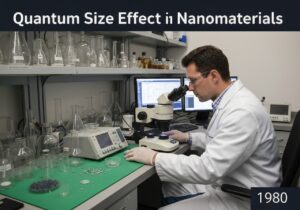Binder jetting is an produzione additiva process where a liquid binding agent is selectively deposited onto a powder bed using an inkjet-style print head. The print head moves across a layer of powder, depositing binder droplets to join particles together. The build platform then lowers, a new layer of powder is spread, and the process repeats layer-by-layer.
Binder Jetting
- Ely Sachs
- Michael Cima
The primary advantage of binder jetting is its speed and scalability, as the inkjet deposition process is typically faster than laser-based methods. It also operates at room temperature, which avoids the thermal stresses and warping common in high-temperature processes. This makes it suitable for a wide range of materials, including sand, metals, ceramics, and polymers. After printing, the part exists in a fragile ‘green state,’ held together only by the binder. It must be carefully excavated from the surrounding loose powder. For metal and ceramic parts, a crucial post-processing step is required to achieve final density and strength. This typically involves sintering in a furnace to burn out the binder and fuse the material particles, a process that causes significant and predictable shrinkage. Alternatively, the green part can be infiltrated with a lower-melting-point metal, such as bronze, to fill the pores and create a dense composite. A unique feature is the ability to incorporate color into the binder, allowing for the creation of full-color 3D models directly from the printer.
Tipo
Interruzione
Utilizzo
Precursori
- inkjet printing technology developed in the 1970s
- powder metallurgy for processing powdered materials
- computer-aided design (cad) for creating digital blueprints
- traditional sand casting techniques used in foundries
- development of specialized chemical binding agents
Applicazioni
- full-color prototypes and architectural models using gypsum powder
- large sand casting molds and cores for industrial foundries
- production of metal parts via subsequent sintering or infiltration
- manufacturing of complex ceramic components
- high-speed, large-scale part production
Brevetti:
- US 5204055 A
Potenziali idee innovative
Livelli! Iscrizione richiesta
Per accedere a questo contenuto devi essere un membro di !Professionals (100% free)!
DISPONIBILE PER NUOVE SFIDE
Ingegnere meccanico, responsabile di progetto, ingegneria di processo o ricerca e sviluppo
Disponibile per una nuova sfida con breve preavviso.
Contattami su LinkedIn
Integrazione di componenti elettronici in plastica e metallo, progettazione in base ai costi, GMP, ergonomia, dispositivi e materiali di consumo di medio-alto volume, produzione snella, settori regolamentati, CE e FDA, CAD, Solidworks, Lean Sigma Black Belt, ISO 13485 in ambito medico
Stiamo cercando un nuovo sponsor
La tua azienda o istituzione si occupa di tecnica, scienza o ricerca?
> inviaci un messaggio <
Ricevi tutti i nuovi articoli
Gratuito, no spam, email non distribuita né rivenduta
oppure puoi ottenere la tua iscrizione completa -gratuitamente- per accedere a tutti i contenuti riservati >Qui<
Principi di invenzione, innovazione e tecnica correlati












